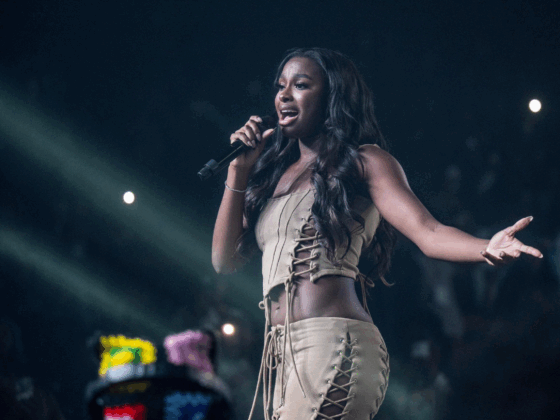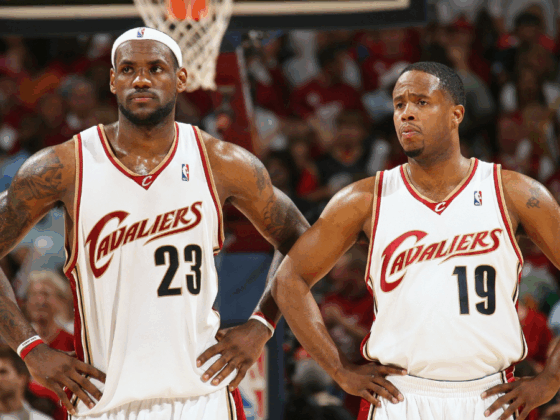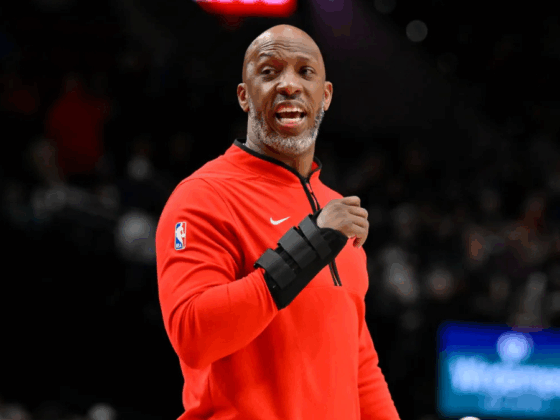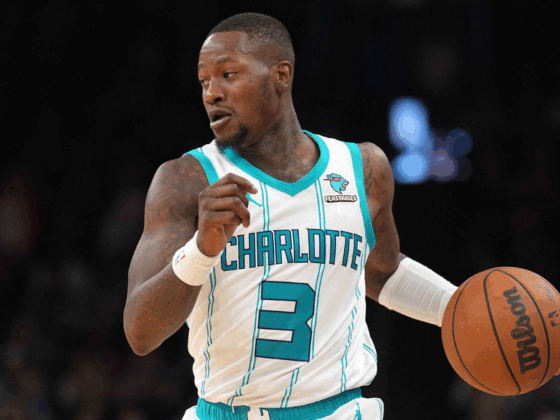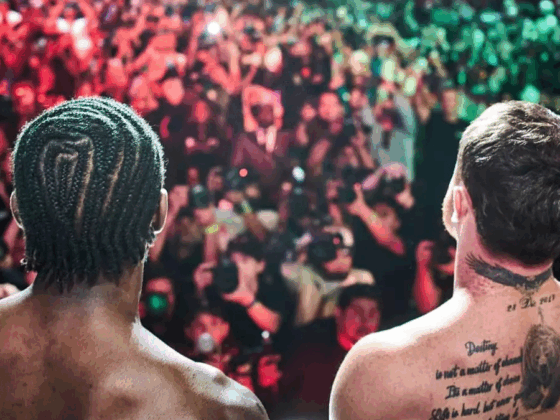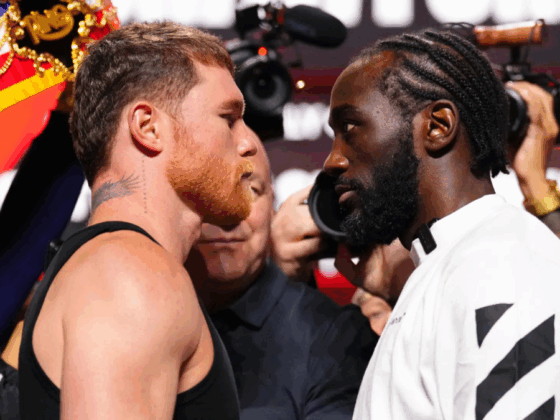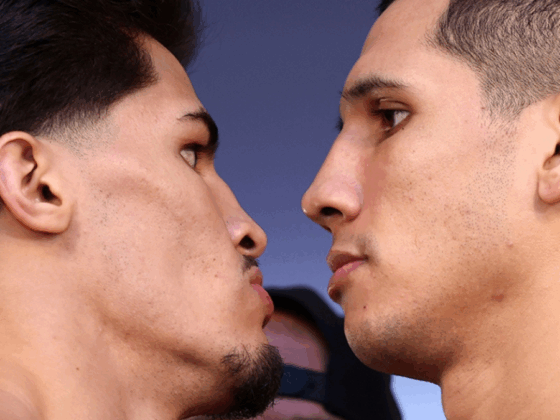
In professional sports, the be-all-end-all will always be star-power. A sustainable, winning organization always supplements each big draft pick, signing or trade with the subsequent addition of a role player who ends up becoming a reliable contributor.
Perhaps the two most prominent examples of this from the 2017-18 NBA season are the Portland Trail Blazers and Toronto Raptors.
Both rosters are headlined by two All-Star-level guards: Damian Lillard and CJ McCollum for Portland, and Kyle Lowry and DeMar DeRozan for Toronto. These star guards do most of the heavy lifting for their teams. Having those players alone gives both teams a good shot at making the playoffs.
There are a lot of factors in determining how far a team goes in the playoffs, namely coaching and roster chemistry.
The players, though, are the main factor. Having two good players – really good, even – isn’t enough to make true noise in the postseason.
Getting the players is important, but so is how they are gotten. The NBA is an arms race, where all 30 teams are doing their best to build up the best cabinet of assets in the league. Smart general managers don’t waste them.
The Raptors’ general manager, Masai Ujiri, has been one of the best asset managers in the league in recent years, leading the Raptors to 59 wins with a game to go.
Last season, Ujiri pulled the trigger on a trade for Serge Ibaka, sending Terrence Ross and a first-round pick to the Orlando Magic.
Orlando received the lower of Toronto and the Los Angeles Clippers’ first-round picks (Toronto received LA’s pick in a 2015 draft-day deal with Milwaukee involving Norman Powell and Greivis Vasquez).
The Raptors had a surplus of guards and a surplus of first-round picks. They packaged those surplusses together to acquire a solid two-way starting power forward.
With the pick they kept, Toronto drafted OG Anunoby, who has started 60 games this season as a rookie.
In the 2016 draft, Toronto drafted Jakob Poeltl ninth overall (with the pick they acquired from the New York Knicks in exchange for Andrea Bargnani) and Pascal Siakam (whom they drafted 27th overall), both rotation players. They signed Fred VanVleet, who has become Toronto’s sixth man, as an undrafted free agent.
Going back to 2015, Toronto drafted Delon Wright and Powell, the latter of whom signed a long-term extension with the Raptors in October.
All of those players are still on their rookie contracts. Having that much production coming from rookie-scale players has allowed Ujiri to splurge on the likes of Lowry, DeRozan, Ibaka and Jonas Valanciuas. The improvement of Wright last season allowed Toronto to send out Cory Joseph in a sign-and-trade deal with Indiana for CJ Miles, and the improvement of VanVleet this season has filled that hole completely.
Toronto’s bench leads the league in point differential, which has been a huge reason why the Raptors are the no. 1 seed in the East.
Neil Olshey and the Trail Blazers have taken a different path than Toronto has, and Portland isn’t as far along as Toronto is, either. But the Blazers, too, have been an example of why each transaction matters.
It wasn’t too long ago that Portland had the largest payroll in the league without the wins to show for it. Olshey spent lavishly in the summer of 2016 after the historic cap spike, handing out $53 million in combined 2016-17 salaries to Allen Crabbe, Evan Turner, Meyers Leonard and Maurice Harkless.
Crabbe, Turner and Harkless were all useful but overpaid. Leonard was, well, just overpaid.
Last summer, Olshey was able to ship Crabbe to Brooklyn in exchange for Andrew Nicholson. Portland stretched Nicholson’s contract over five seasons, saving them about $15.6 million per season through 2020.
Crabbe was useful, though, so Portland had to replace his production, and hoped to do so at a cheaper rate. The man to step up in his place was Shabazz Napier.
After unsuccessful stints in Miami and Orlando, Napier was traded to Portland in 2016 for cash considerations. Napier didn’t get much run last season, but he has been solid in an increased role this season, averaging 8.8 points and shooting 37.7 percent from three (2.9 attempts) in 20.9 minutes per game. He hasn’t been a world-beater, and he hasn’t been better than Crabbe. But he’s been enough, and more importantly, he’s cheaper.
Like Toronto last season, Portland made a big deal to help solidify its starting unit:trading Mason Plumlee to Denver for Jusuf Nurkic and a first-round pick.
There were two main goals with this deal. The first was financial, as Plumlee was an impending free agent (he has since re-signed with Denver), while Nurkic had another year before he would hit restricted free agency. The second was to get a new look at center, as Plumlee was good, but not good enough, to help get Portland where they wanted to go.
The first-round pick was just a bonus (more on that later).
Nurkic wasn’t a good fit in Denver, as Nikola Jokic was the Nuggets’ center of the future. Nurkic wasn’t committed to the situation, so he requested a trade and let himself get out of shape. After being traded, he immediately thrived in his new situation in Portland, averaging 15.2 points, 10.4 rebounds, 3.2 assists and 1.9 blocks per game in the final 20 contests of the regular season.
Nurkic’s numbers have slipped a bit this season, but his defense has more than made up for it. He has improved massively on that end and has been a big reason why Portland jumped from a 107.8 defensive rating last season to 104.5 this season.
Heading into the 2017 draft, Portland was armed with two first-round picks: Their own and the one they received from Denver (via Memphis).
By packaging those two (15th and 20th overall), Portland was able to move up to 10 and select Gonzaga big man Zach Collins.
Collins has already developed into a useful bench big as a rookie, and projects to be good near and away from the rim on both ends of the floor as he grows.
Portland still needs another reliable bench contributor or two to go to the next level, but the improvement of Napier and Nurkic, along with Lillard’s surge, of course, and the addition of Collins, have helped the Blazers lock in the no. 3 seed in the West.
Star power will always matter more than anything, and the lack of LeBron James, Stephen Curry, Kevin Durant and James Harden may make it impossible for Toronto and Portland to win the title. But the way both teams have built around the stars they have has at least put them in the conversation.
